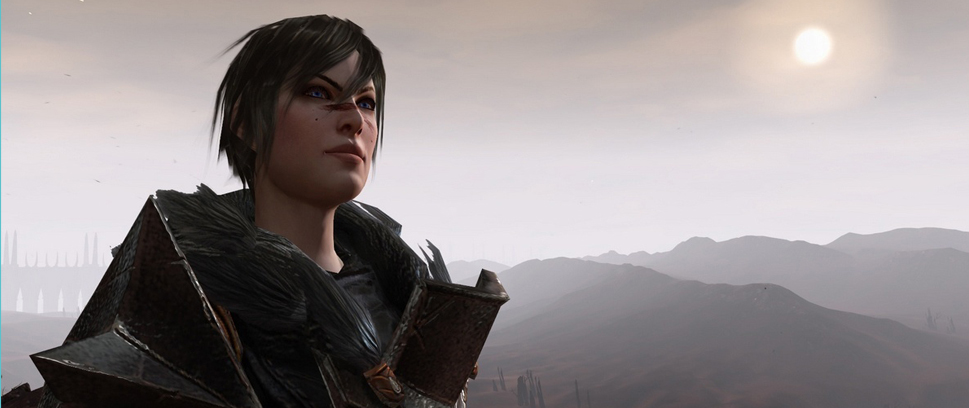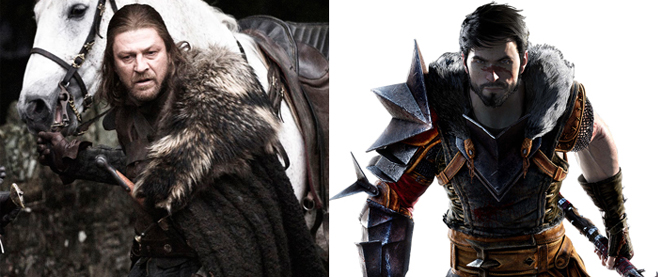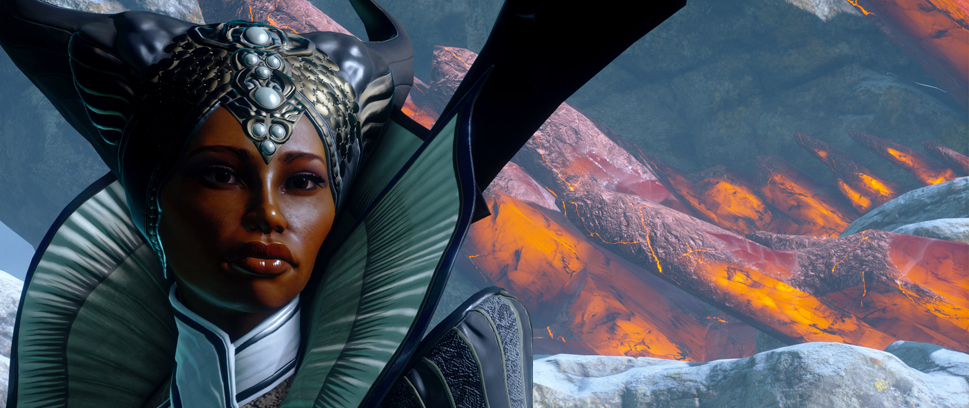
The Biggest Choice You’ll Never Make
The following is a reprint from Unwinnable Weekly Issue Twenty-Seven. If you enjoy what you read, please consider purchasing the issue or subscribing.
———
The modern BioWare phenomenon begins with a choice. Part of the way through the first Mass Effect game (released in 2007), you and your party land on a planet called Virmire and you’re tossed into a big action sequence. At its climax, two of your party members leave to do two different things, something goes wrong and you have a choice: save Kaiden, or save Ashley?
One lives. One dies. That’s not how big-budget games were supposed to work. They were supposed to work like this: do all your quests and accomplish your violence effectively and you’ll be able to save everyone and see everything. BioWare had included choices — many games had included choices — but they tended to be simple “be good” or “be evil.” The choice on Virmire suggested something bigger and more traumatic. There was a slight problem with even that, though: Kaidan and Ashley were, well, kinda boring. The choice’s existence could be mildly traumatic, but it could clearly be worse if, say, it were beloved party members like Garrus and Wrex.
Regardless, BioWare continued to experiment with their choices through their two main trilogies, Mass Effect and Dragon Age. They quickly discovered that those choices gained emotional heft by being serialized — if it carried over from one game to the next, and if it changed things in those games, then it could really affect players. The ideal BioWare choice, then, is a life-or-death choice with two likeable candidates, both of whom have the weight of serialized history behind them.
That choice exists in BioWare’s most recent game, Dragon Age: Inquisition.
Even if it’s a choice you’d care about, you probably won’t see it.
Let’s set the stage. Around halfway through Inquisition, your forces attack a fortress called Adamant. After winning the siege, you and your party are tossed into the Fade, the home of spirits and demons. One of those demons is threatening to kill you, and barring your escape. You can defeat it enough to leave, but only if one of your buddies through this section of the game stays behind to cover your escape.
It’s Virmire all over again — two names and who do you pick?
In one corner is Hawke, the Champion of Kirkwall, and the player character from Dragon Age 2. BioWare did a tremendous job of imbuing Hawke with a voice and a personality, while making the player’s choices customize the character over time. If you liked the second Dragon Age, you pretty much had to like Hawke. It’s tremendously exciting to see Hawke show up in Inquisition, building on her character history and relationship with the much-loved party member Varric.
In the other corner…well, this is where it gets complicated.
In Dragon Age: Origins, the player character is unvoiced, and fills a much more generic “hero” role than Hawke does in its sequel. You could even make the argument that the protagonist isn’t the “Hero of Ferelden” but rather his first companion, the Grey Warden Alistair, fills that role. Much like Garrus in Mass Effect, Alistair serves as a moral anchor and best friend to the player character. He’s also consistently charming and funny, and one of the two best “tank” class characters, meaning he distracts enemies and absorbs damage. He’s both wonderful and useful.
What’s more, Alistair is also the embodiment of the more interesting of the two plot threads running through Dragon Age: Origins. The first is an ancient evil awakened and destroying everything, blah blah blah fantasy game. The second is the political conflict in the game’s setting, the country of Ferelden, where the ruthless Teryn Loghain has allowed the true king to die, has taken the throne and is actively working against you and your party.
As the game progresses, it turns out that Alistair is a bastard son of the old king, thus fulfilling his role as the High Fantasy Hero, a la Aragorn from The Lord of the Rings. With enough power, he can be raised to the throne to remove Loghain and bring the full support of the kingdom against evil. Putting Alistair on the throne becomes more the “good” move, if you’re playing with Origins’ morality in mind, and practical as well, as he can clearly be trusted to support your cause. Alternately, if you’re playing as an asshole, you can have him killed after he attempts to take the throne, or you can let him die a hero in the final battle.
Thus Alistair against Hawke would be the perfect BioWare choice for horrifying players. And it exists in Inquisition! It’s just…not something you’re likely to see.
See, in order for Alistair to be the Grey Warden at Adamant, you have to have made a specific set of choices in earlier games (modeled in the Dragon Age: Keep program). Obviously, he can’t be dead, but he’s also removed from consideration if he’s made king. Given that his rise to the throne can easily be considered the default choice for Dragon Age: Origins, that’s a pretty big ‘if.’ So you have to have chosen the circumstances that mean that he’s still alive, still a Grey Warden, but not in charge. Possible, but not likely.
Then, in order to care about the choice, you have to have played and enjoyed Dragon Age: Origins and Dragon Age 2 and also liked both Hawke and Alistair. In that case, you get the ultimate BioWare choice. But, even if all choices are equal, that’s only about a 25% chance. Given the emotional weight of those choices, I’d guess the percentages are even lower: maybe one in ten people who would actually care about an Alistair/Hawke choice would actually have set their game world in a way where this would happen.
If you don’t have Alistair at Adamant, there are two other options: first, Loghain can be redeemed and recruited to the Grey Wardens in Dragon Age: Origins. If this happens, and he’s alive, he’ll slot in for Alistair. This is still a fairly tough choice — Loghain was a fascinating antagonist, and his redemption attempts compelling. But he’s much older, and he needed that redemption, unlike the heroes Hawke and Alistair. And if Loghain isn’t available, then you get Some Guy. Okay, his name is Stroud and he’s not bad, but he was an incredibly minor character in Dragon Age 2, and possesses none of the emotional weight of serialization that Alistair or Loghain have.
Most players will end up choosing between Hawke and Some Guy. Which is ridiculous. It’s also a general pattern with Dragon Age: Inquisition — this is not a game that wants to force players to make hard choices. After the controversy about the narrative experiments of its predecessor, and the firestorm over Mass Effect 3’s apocalyptic ending, it’s understandable that BioWare would be a little gun shy.
But they’re really gun shy throughout Inquisition, with barely any choice that threatens a player’s emotions throughout the game. The only one they do have won’t even be seen by the people who care.





